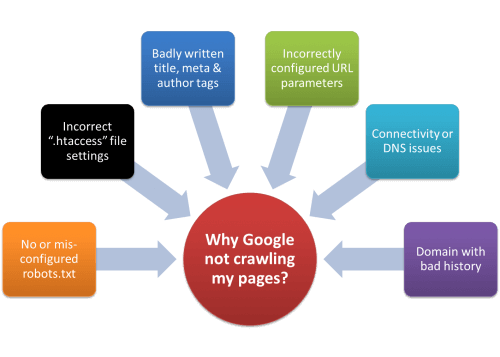When designing your website’s URL structure, a common question arises: Should you include file extensions like .html, .php, or .aspx in URLs? From a modern SEO and user experience perspective, the short answer is no.
Why Avoid File Extensions in URLs?
1. Cleaner, More User-Friendly URLs
File extensions do not enhance readability. A URL like /about is cleaner, easier to remember, and more clickable than /about.html. Modern web users expect simplicity and intuitiveness, and short, keyword-focused URLs deliver that.
Added modern UX/SEO principle: short, readable URLs are preferred by users and search engines.
2. No SEO Advantage to Extensions
Search engines like Google do not use file extensions as a ranking factor. Whether your URL ends in .html, .php, or has no extension at all has zero direct SEO impact.
Clarified with modern context: file extensions don’t affect Google rankings.
3. Future-Proofing Your Website
Tying your URLs to a specific technology (.html, .php, etc.) can backfire. If your backend changes, you’ll need to redirect or rebuild those URLs to prevent SEO issues. Extension-less URLs are technology-agnostic, making your site more adaptable.
Modernized explanation: persistence and platform independence are critical for long-term SEO.
4. Improved Maintainability and Scalability
With clean URLs, you’re no longer bound by file structure. You can easily redesign or migrate platforms (e.g., from PHP to React or headless CMS) without breaking your link structure.
5. Easier Routing and SEO Control
Most modern CMS platforms (WordPress, Wix, Shopify) and frameworks (Next.js, Nuxt, Astro) support extension-less URLs out-of-the-box. You can also implement clean URLs on traditional servers using .htaccess rewrite rules or web server configurations.
Updated with current technologies (CMSs and JS frameworks) instead of relying solely on .htaccess.
6. Supports SEO Best Practices
While extensions don’t directly hurt SEO, poor URL practices can. Make sure your URLs:
Use hyphens (
/seo-tips, not/seotipsor/seo_tips)Reflect content hierarchy (
/blog/seo/url-structure)Are short, lowercase, and keyword-relevant
Avoid dynamic parameters where possible (
?id=123)Use canonical tags to prevent duplication if multiple versions exist
Technical Tips
Web servers should be configured to resolve URLs without needing extensions, using MIME types and proper routing.
.htaccess rewrite rules (for Apache) or clean URL rules (in NGINX, Node, etc.) can help maintain SEO-friendly structures.
For reference, W3C’s Cool URIs article still holds valuable advice:
“Cool URIs don’t change.”
Conclusion
Avoiding file extensions in URLs is a best practice in both modern web development and SEO. Clean, readable URLs are easier for users, simpler to maintain, and better aligned with long-term technical strategies. Whether you’re running a CMS, building a single-page app, or optimizing an e-commerce store, clean URLs help you scale without SEO headaches.



